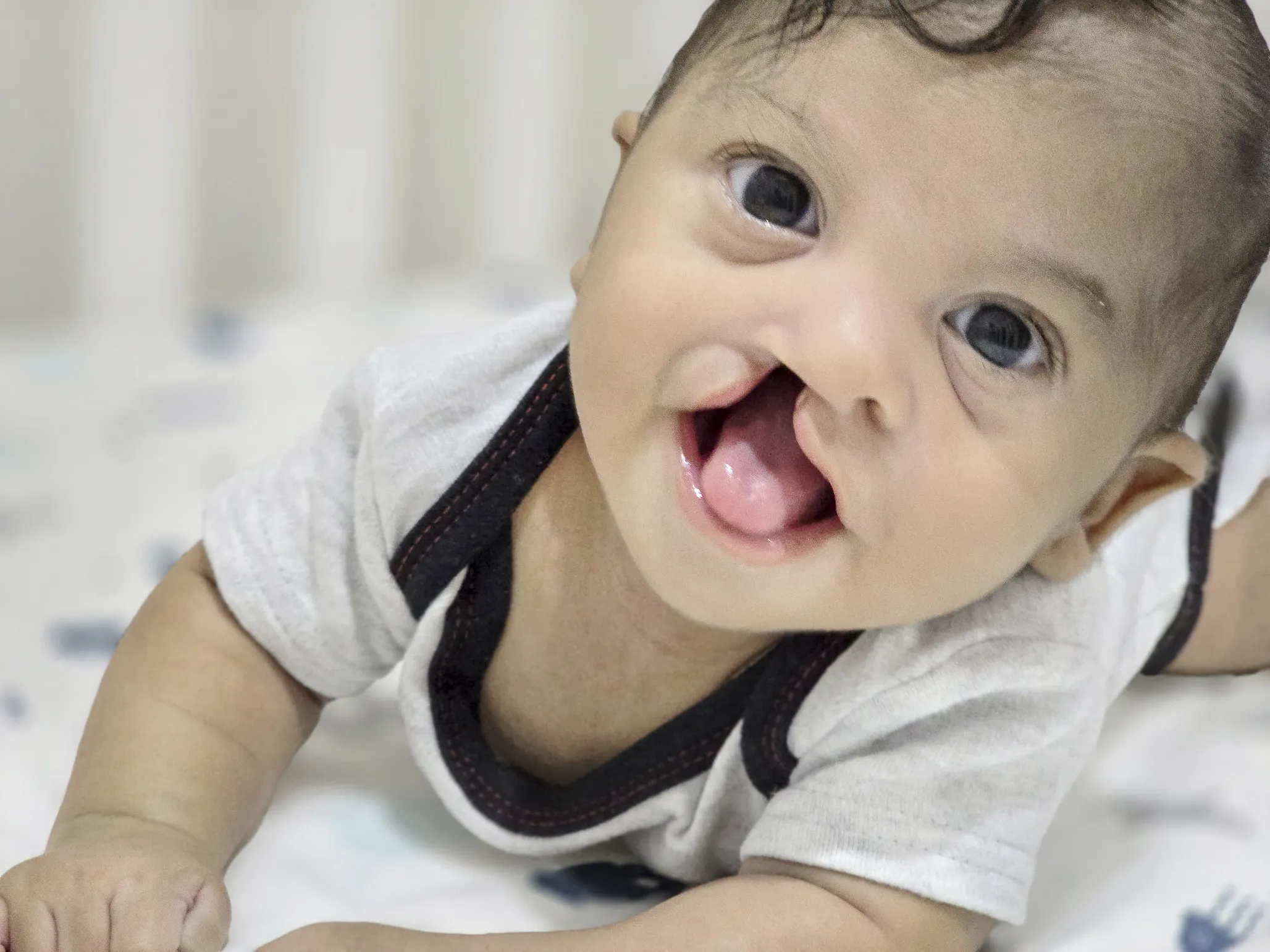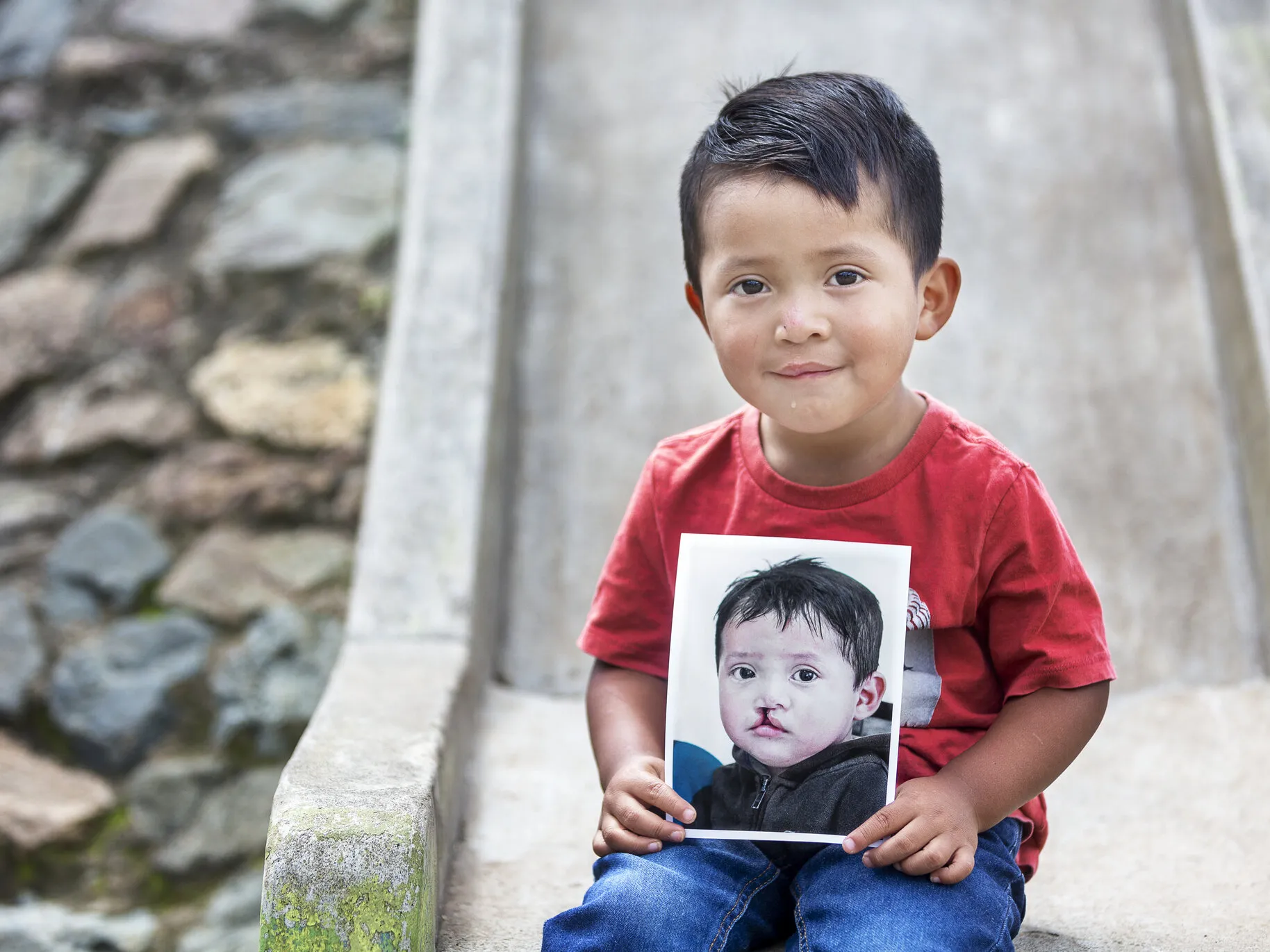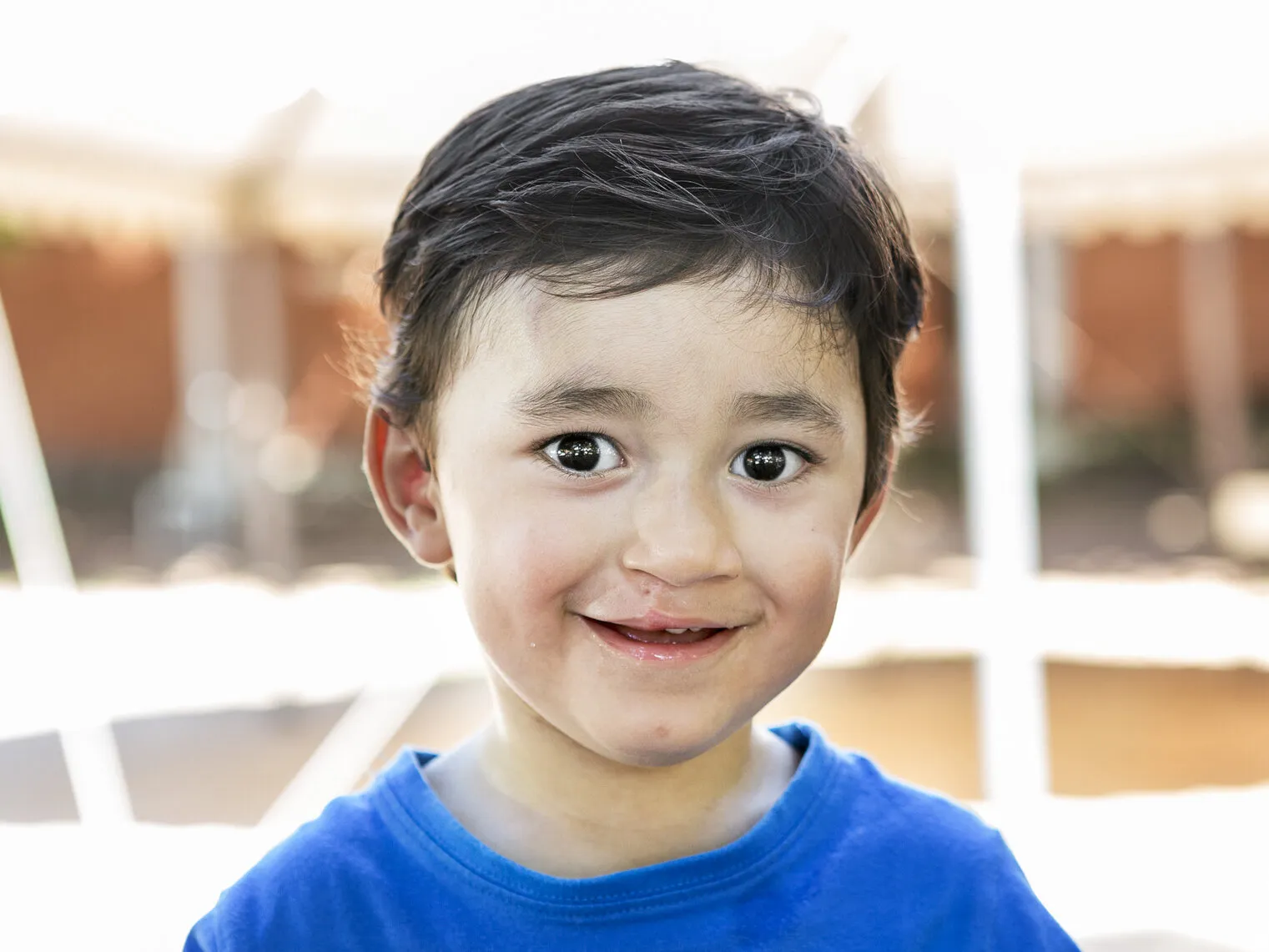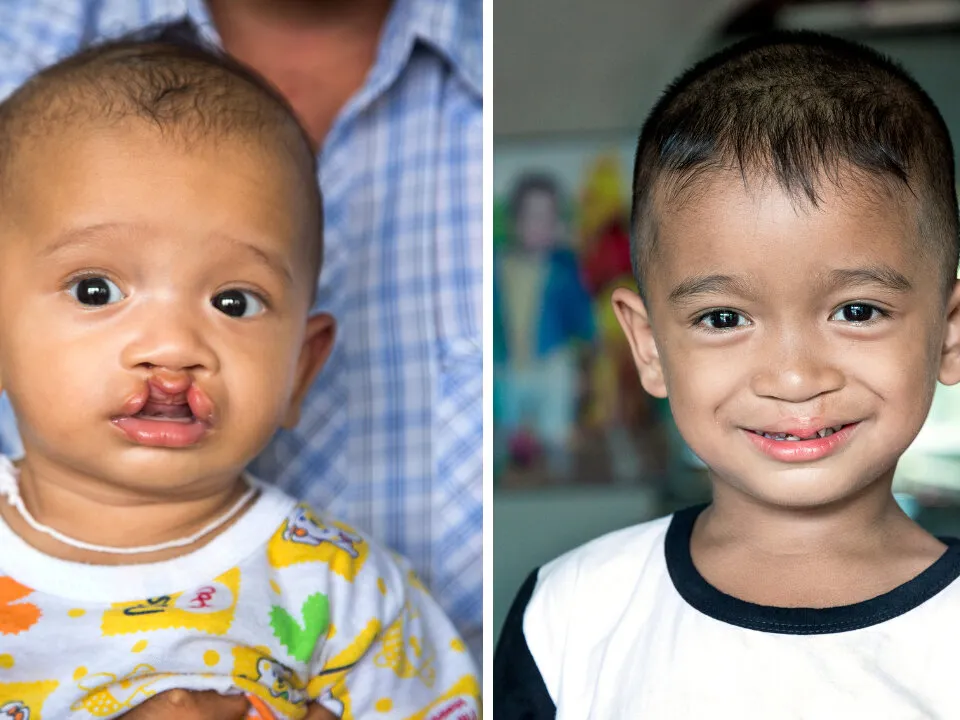Patients
Perseverance and Resilience: Lexxi’s Journey of Healing Through Operation Smile Colombia
In Colombia’s La Guajira Desert, striking natural beauty is balanced with harsh and unrelenting conditions.
The dry wind is abrasive, whipping dust and sand into the scorching heat. Yet, blue skies and radiant sunshine are abundant, and tall green cacti stand above the scrub thickets.
For millennia, the Wayuu people have called La Guajira home. But for Elba and Lexxi’s family, it’s become a difficult place for them to thrive.
Lexxi was born with a cleft lip and palate, the seventh of eight siblings and the family’s only child affected by a cleft condition.

Her family lives in an impoverished, remote and dangerous area near the border with Venezuela that’s a four-hour bus ride away from Uribia, Colombia, the nearest town. As Venezuela’s economic and civil institutions have descended into a dire humanitarian crisis, criminal activity in this region has been on the rise.
Elba, Lexxi’s mother, tells us that thieves stole both her motorbike, the family’s sole mode of transportation, and her small herd of goats.
After the birth of her eighth child, Elba and her children were abandoned by her husband.
Despite these incredible hardships, Elba perseveres. She makes a living by weaving mochilas, traditional Wayuu wool bags, and selling them in the market in Uribia.

However, the craft generates a low income, preventing Elba from being able to afford surgery for her daughter. This factor and the remoteness of their village, which lacks running water and electricity, created nearly insurmountable barriers to Lexxi receiving surgical care.
Eight years earlier, when Lexxi was born, Elba was shocked and heartbroken to see her baby born with a cleft lip and palate.
“When I saw my daughter like that, I got scared,” Elba says. “I wondered, ‘What is going to happen with my daughter? Is she going to be like this when she grows up?’”
At the time of Lexxi’s birth, Elba wondered why her daughter was born with a cleft lip and palate, as did her neighbors. She wondered if she had eaten something wrong during the pregnancy. Others speculated that Elba had been scared by an animal before Lexxi was born.
Without having learned that the cause of an individual’s cleft condition cannot be specifically determined – it could be affected by genetics, environmental factors or a combination of both – Elba eventually accepted it as God’s will.
But overwhelming worry and doubt soon befell Elba; Lexxi’s cleft lip and palate prevented her from being able to breastfeed. Elba’s only option was to spoon feed Lexxi goat’s milk, and, fortunately, her daughter was able to feed this way.
Throughout her childhood, Lexxi was often sick and her cleft palate caused her difficulty with eating and breathing properly at times. Living hours away basic health services, Elba did her best to care for Lexxi as she dealt with these bouts of illness.
Much like her mother, Lexxi is resilient. She loves to go to school and is a bright student, though some of her classmates bully her and call her names such as “no mouth.” She is quick to defend herself against her bullies, and her teacher and friends also stand up for her.

Recently, Lexxi came down with an acute respiratory illness, and Elba knew that she had to rush her to the hospital for treatment. It was on this journey that Elba learned about Operation Smile Colombia and the annual surgical program it hosts in nearby Riohacha.
This was the first time that Elba heard that surgery could repair her daughter’s cleft condition. It was also the first time she felt a sense of hope for her daughter’s future.
With the help of a local public health coordinator, Elba and Lexxi made the long journey to a friend’s village just outside of Uribia, which is where we met them for the first time. This area is called Polvo, meaning “dust,” and it closely resembles their community.

From here, it’s a short drive to Riohacha, where Operation Smile Colombia medical volunteers will be providing free cleft surgery and multidisciplinary treatment, including speech therapy and psychosocial care, next week. Every year, the organization brings these services to the hardest-to-reach patients in rural and remote communities across the country.
When Elba and Lexxi arrive at the program site, surrounded by dozens of other families and children affected by cleft conditions as well as compassionate volunteers, their dispositions transform from downcast and reserved to hopeful and energetic.

After receiving a comprehensive health evaluation, Lexxi was deemed healthy enough to receive surgery for her cleft lip.
“The idea is that Lexxi, who previously had problems because of her cleft, now with a new smile, a new face, will be accepted by other children,” says Dr. Sonia Montenegro, an Operation Smile Colombia volunteer anesthesiologist. “She will be included; she can play with them and have a normal childhood.”
And after a surgery that took about an hour to complete, the course of Lexxi’s life changed forever.
“My heart was pounding so loud and I had to tell myself to calm down,” Elba says, visibly relieved and overjoyed after seeing her daughter’s new smile for the first time. “She looks so beautiful now, and I feel nothing but sheer happiness.
“I am really thankful to everybody who helped us. I am satisfied, I am happy, this is all I feel right now.”

Before Lexxi and Elba returned home, Lexxi was scheduled to return to next year’s Riohacha surgical program to receive a cleft palate surgery that will help her speak more clearly, eat and breath without difficultly, and prevent recurring illnesses and infections.
A year passes, and we meet Elba and Lexxi in Polvo once again. While Lexxi, now 9, is still very shy and sticks close to her mother, her surgery has healed beautifully. We soon learn about how cleft lip surgery has brought improved health and happiness to her life.
“She already speaks much better after her lip surgery, and she is so beautiful,” Elba says.

Elba tells us that nobody bullies Lexxi anymore, and she wholeheartedly enjoys third grade. She is a great student and excels at math; most recently, she learned how to divide. Her favorite things to do are studying, completing her homework and drawing pictures of animals and landscapes. Elba adds that she’s heard Lexxi talking to her siblings about her dreams for adulthood, telling them that she would love to become a secretary, nurse or doctor one day.
As soon as Lexxi arrives at the program site, she is all smiles as she’s greeted by the volunteers and makes fast friends with children around the screening area, dancing and playing with bubbles.
She colors and draws as she awaits a speech therapy session from volunteer Angie Agudelo, who provided lessons for Elba to give to Lexxi when they return home.

Lexxi’s palate surgery was a success. She’ll have the option to return to Riohacha every three months to receive ongoing speech therapy and other treatments like psychosocial counseling from Operation Smile Colombia volunteers.
Though surgeries and cleft care can’t solve many of the problems that her family must face in their rugged corner of the country, Lexxi’s journey of healing is on a path toward a brighter future.













